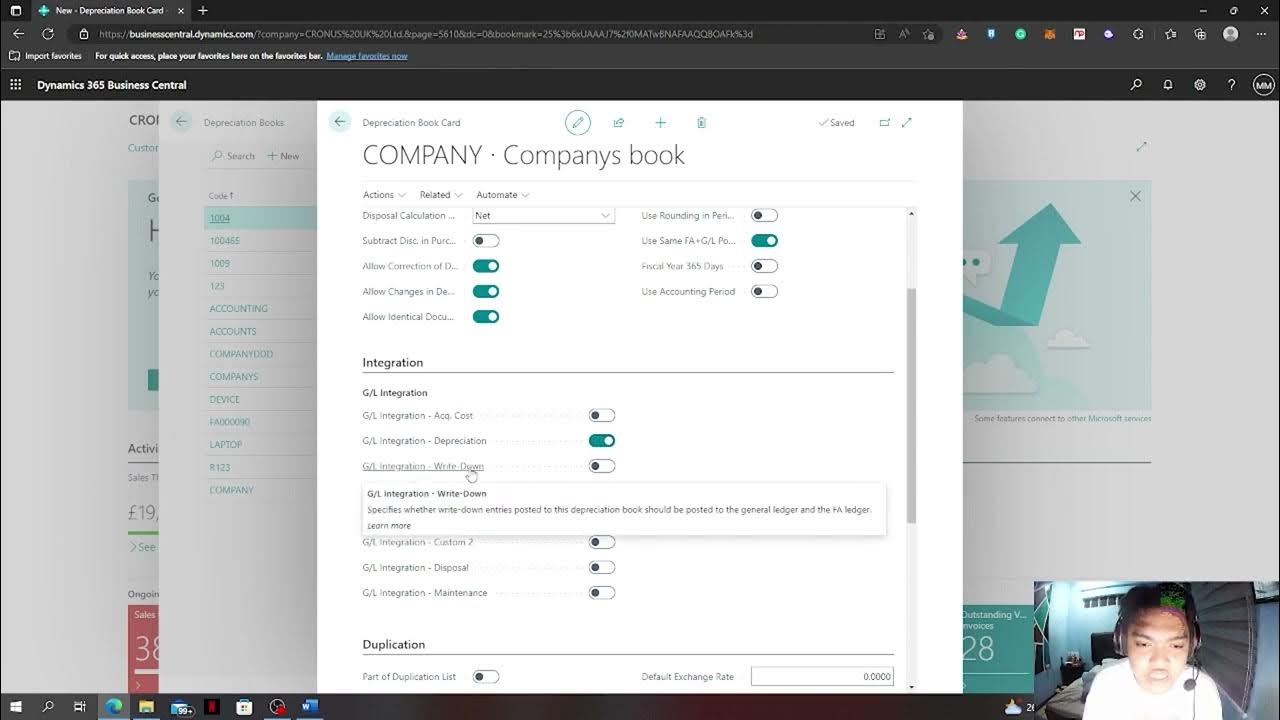Operating Capacity - Introduction
Summary
TLDRThis video explains the concept of operating capacity using the example of a book report. The narrator, recalling their own experience, discusses how to manage time and set achievable goals when faced with a 400-page novel and a deadline. They introduce the idea of operating capacity, which is the maximum output that can be achieved within a certain timeframe. Factors like print size, interest level, distractions, and fatigue are discussed as influencing daily output. The video contrasts operating capacity with the fixed capacity of a container, highlighting its adaptability depending on conditions.
Takeaways
- 😀 Capacity is often viewed as the maximum amount something can hold, like a container (e.g., cups, gallons, or fuel tanks).
- 😀 The concept of operating capacity refers to the maximum output that can be achieved within a specific unit of time.
- 😀 When planning a task, such as reading a 400-page book for a report due in 20 days, you need to calculate your operating capacity (e.g., how many pages you can read per day).
- 😀 To meet the 20-day deadline for reading a 400-page novel, you would need to read 20 pages per day.
- 😀 If you also need time to write the report, you may have only 16 days to read, which means you need to read 25 pages per day.
- 😀 Various factors can impact your operating capacity, such as print size, how challenging the book is, your interest level in the material, other daily commitments, and potential distractions.
- 😀 Time factors, like background noise, fatigue, or social interactions, can reduce how many pages you can read on a given day.
- 😀 Operating capacity is a tool for setting goals and understanding what affects your ability to meet those goals (e.g., reading 25 pages per day).
- 😀 The key difference between container capacity and operating capacity is that the former is fixed, while the latter can vary based on conditions.
- 😀 Operating capacity can be adjusted based on subtle changes in conditions, such as distractions or changes in your personal energy levels, which can affect your output in a given timeframe.
Q & A
What is the main difference between container capacity and operating capacity?
-Container capacity refers to the maximum amount an object can physically hold (e.g., a cup's volume in liters), whereas operating capacity is the maximum output that can be completed in a specific time unit, such as how many pages can be read per day.
How does the concept of operating capacity apply to completing a book report?
-In the context of the book report, operating capacity is used to determine how many pages need to be read per day (e.g., 25 pages per day) in order to finish the book within the given timeframe of 20 days, while considering factors that may affect the actual reading capacity.
Why is it important to account for factors like print size and personal interest when determining operating capacity?
-These factors can either increase or decrease the amount of reading done each day. For example, a book with larger print or one that is more interesting can lead to reading more pages per day, while a challenging book or distractions can slow down the process.
How does fatigue impact operating capacity?
-Fatigue can reduce the amount of work done each day. Even if the target is set at a specific number of pages, being tired may make it difficult to achieve that target, meaning the actual output could be lower than the set goal.
What role does setting a goal (such as reading 25 pages per day) play in achieving the task?
-Setting a goal provides a clear target to aim for, helping to manage time and efforts effectively. It serves as a benchmark to measure progress, and knowing the target can motivate someone to reach it, even if actual performance may vary due to external factors.
How can operating capacity help in managing time and achieving goals?
-By defining a clear operating capacity (e.g., 25 pages per day), individuals can structure their time and efforts around this target. It helps break down large tasks into manageable daily goals and provides flexibility to adjust based on changing conditions.
What are some examples of external distractions that might reduce operating capacity?
-External distractions like noise, interruptions from pets or friends, or social events can take time away from reading or affect concentration, ultimately reducing the amount of pages read per day.
Why is it important to recognize that operating capacity can fluctuate day-to-day?
-Recognizing that operating capacity can fluctuate helps in setting realistic expectations and adjusting the approach when conditions are not ideal. It also encourages a more flexible and adaptable mindset when working towards a goal.
What might happen if someone consistently fails to meet their operating capacity goal (e.g., reading 25 pages per day)?
-If someone consistently fails to meet their target, they may miss the deadline for completing the book report. They would then need to either increase their daily reading capacity or select a shorter book to complete the report on time.
How does the concept of operating capacity relate to productivity in general?
-Operating capacity is a broader concept that can be applied to any task or goal. It helps in understanding how much output can be achieved in a given time frame, accounting for potential obstacles and fluctuations. By recognizing one's true operating capacity, people can better plan and maximize their productivity.
Outlines

Cette section est réservée aux utilisateurs payants. Améliorez votre compte pour accéder à cette section.
Améliorer maintenantMindmap

Cette section est réservée aux utilisateurs payants. Améliorez votre compte pour accéder à cette section.
Améliorer maintenantKeywords

Cette section est réservée aux utilisateurs payants. Améliorez votre compte pour accéder à cette section.
Améliorer maintenantHighlights

Cette section est réservée aux utilisateurs payants. Améliorez votre compte pour accéder à cette section.
Améliorer maintenantTranscripts

Cette section est réservée aux utilisateurs payants. Améliorez votre compte pour accéder à cette section.
Améliorer maintenant5.0 / 5 (0 votes)






